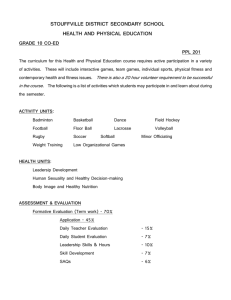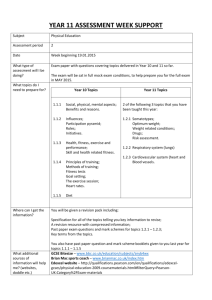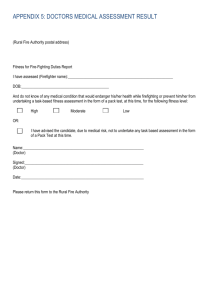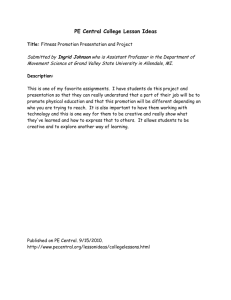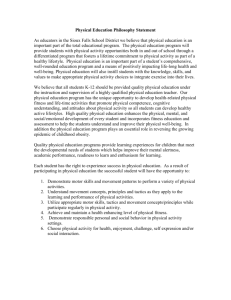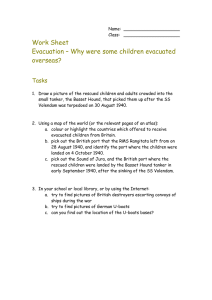Test, Measurement, and Evaluation
advertisement
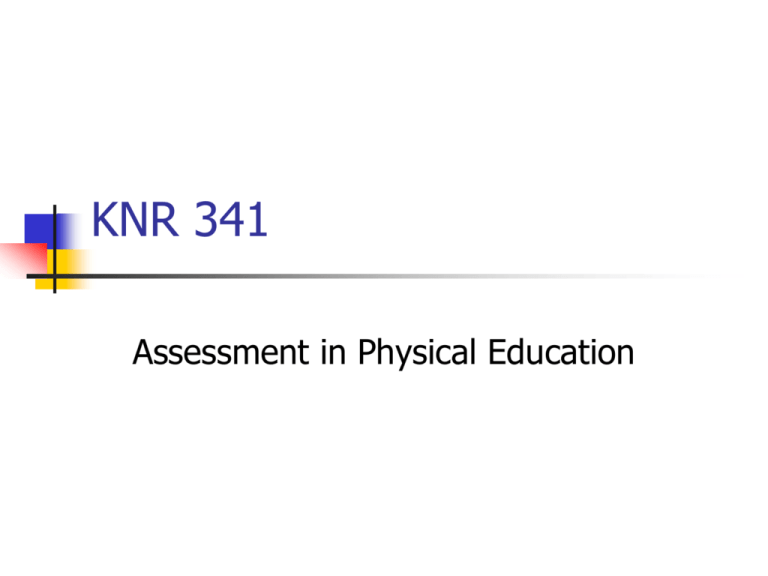
KNR 341 Assessment in Physical Education Daily Measurement and Evaluation Alarm Clock Gasoline Gauge Speedometer Meeting New People Opinion of This Class Types of Assessment Quantitative Time in one mile run Score on basketball spot shooting test Grade on weight training exam Qualitative “Excellent” ranking on throwing form Checklist on golf swing Score on gymnastics routine Test, Measurement, and Evaluation Test – instrument, protocol, or technique that measures attribute of interest Measurement – process of collecting data on attribute of interest Evaluation – process of interpreting the collected measurement to make professional judgment of value or worth LET’S GIVE IT A TRY Historical Perspective 1860-1900 Edward Hitchcock and Dudley Sargent initially studied anthropometrics and body symmetry. Around 1880, performance capacities became of interest. Late in 1800s, physical educators began testing cardiovascular efficiency. Historical Perspective 1900 - 1940 Further refinement of strength testing. Test batteries were developed to measure endurance of various muscle groups. In 1920s, new statistical methods were introduced that improved validity of tests. The concept of measuring social skills was also introduced. Historical Perspective 1940 - 1980 World War II prompted national concern for physical fitness. Kraus –Weber tests compared American to European youth in 1950s. In 1960s and 1970s, the development of a scientific knowledge base evolved. Historical Perspective 1980 - Present Decline in PE requirements in schools. Dramatic declines in levels of youth fitness. Health related fitness testing emphasized. Demands for accountability increased. Technological advances helped assessment efforts. Current Trends Public Health Initiatives Promotion of Physical Activity Problems with Obesity Evaluation Standards for School Programs Alternative Assessments Rapid Technological Advances Growth of Activity-Based Programs Assessing Student Performance Diagnosis Classification Achievement Improvement Motivation Assessing Teacher Performance Assignment of Grades Evaluation of Units of Instruction Evaluation of the Curriculum Teacher Effectiveness Public Relations



